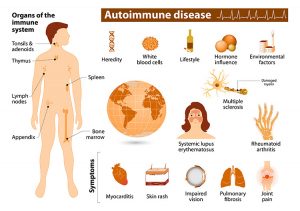Breast cancer prognosis is especially poor in patients with low serum selenium and serum selenoprotein P concentrations. Now, researchers have discovered natural autoantibodies with antagonistic properties to selenoprotein P uptake in breast cancer patients and in patients with thyroid disease [Demircan 2022; Sun 2022].

Selenium is an essential trace element that has numerous biological functions in the body, most of which are carried out by selenium-containing selenoproteins. Among the more important selenoproteins are selenoprotein P, the main transporter of selenium in the blood, and glutathione peroxidase 3 (GPX3), an important antioxidant.
The human body does not synthesize selenium. Human cells are dependent upon selenium sources in the diet. Unfortunately, the selenium content in the soil and in food varies considerably from region to region in the world. For example, the plasma selenium concentrations in people living in much of Europe are generally below, often well below, 80–90 mcg/L whereas people living in North America generally have plasma selenium levels above 120 mcg/L [Alehagen 2022].


